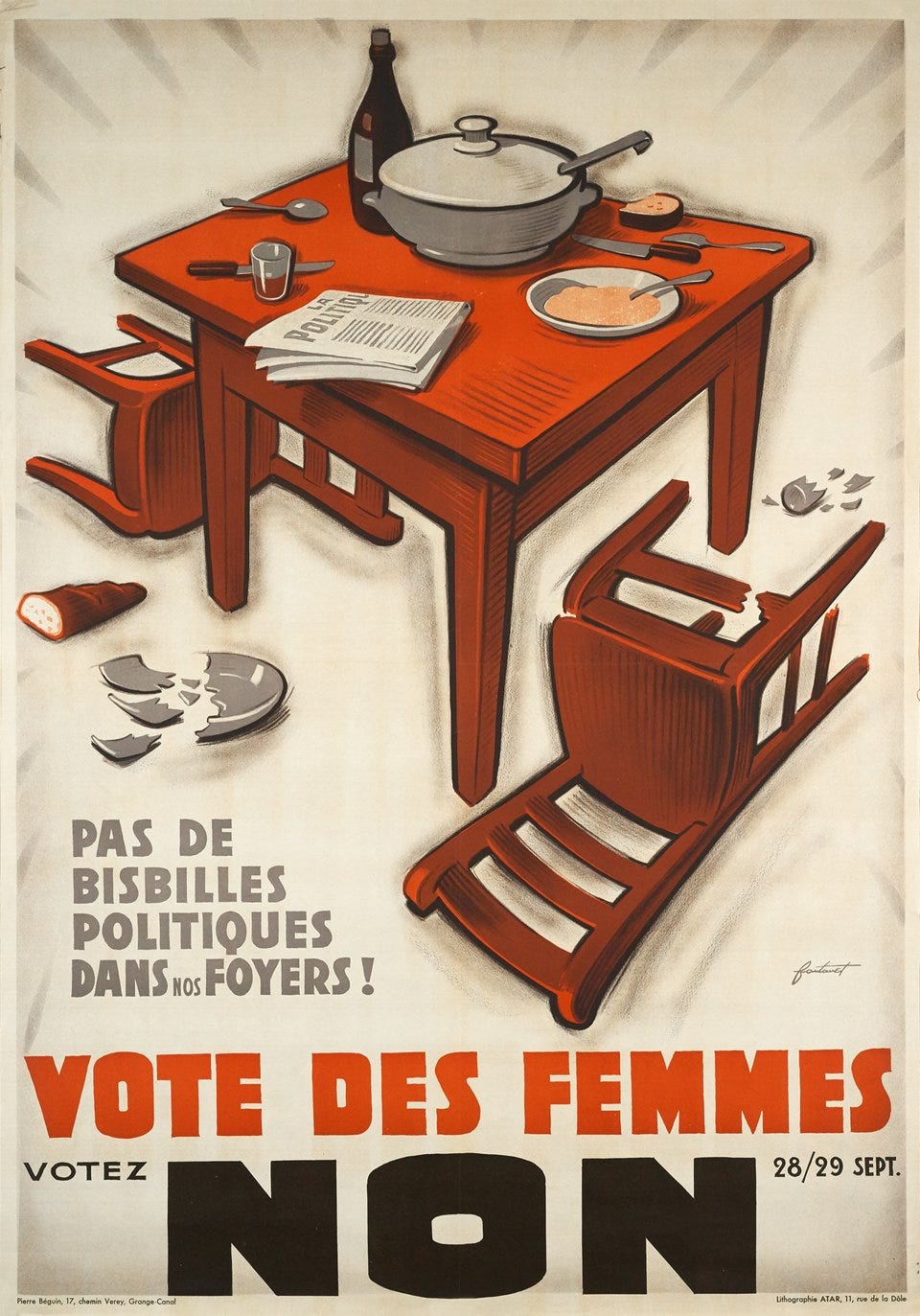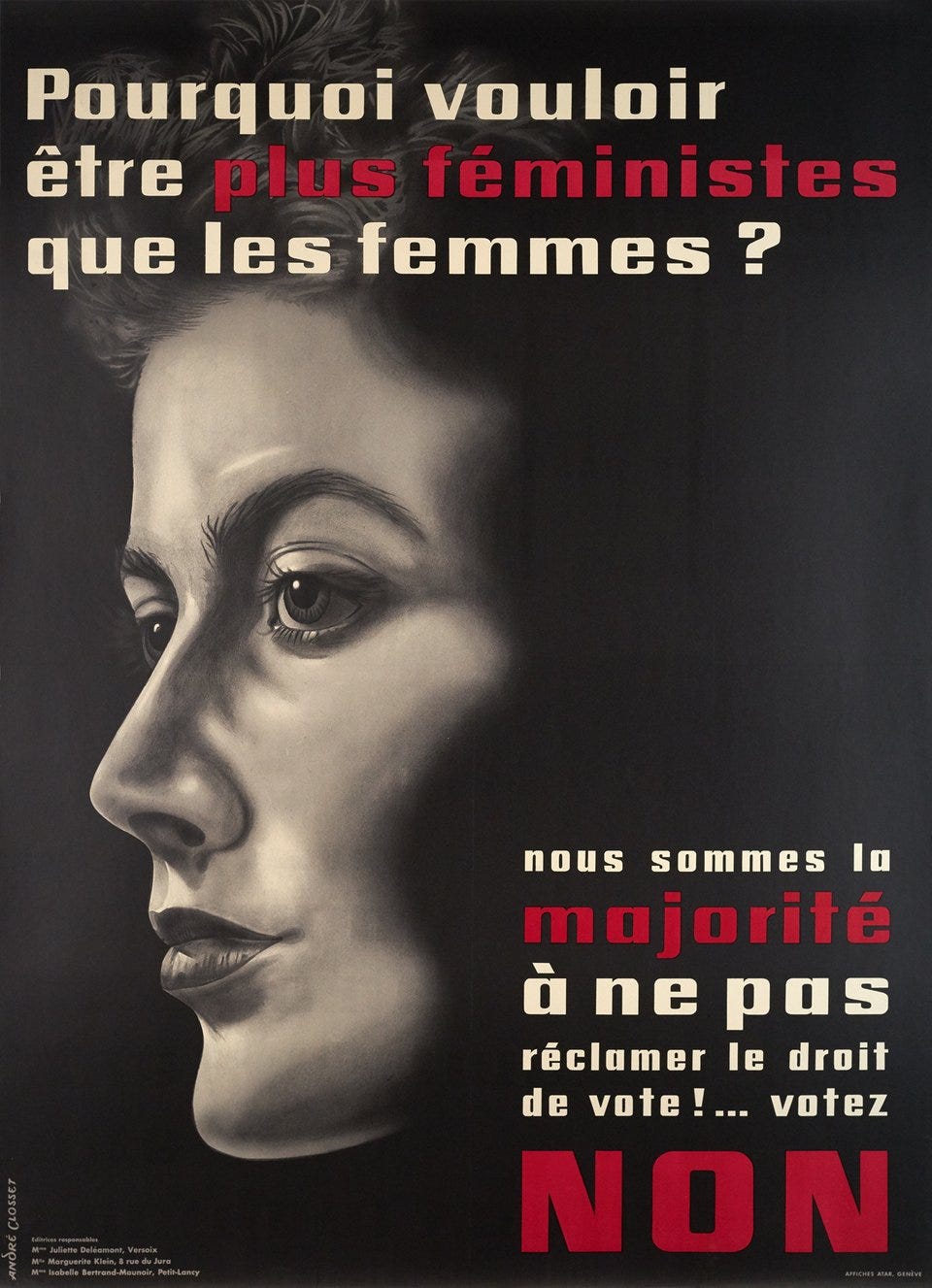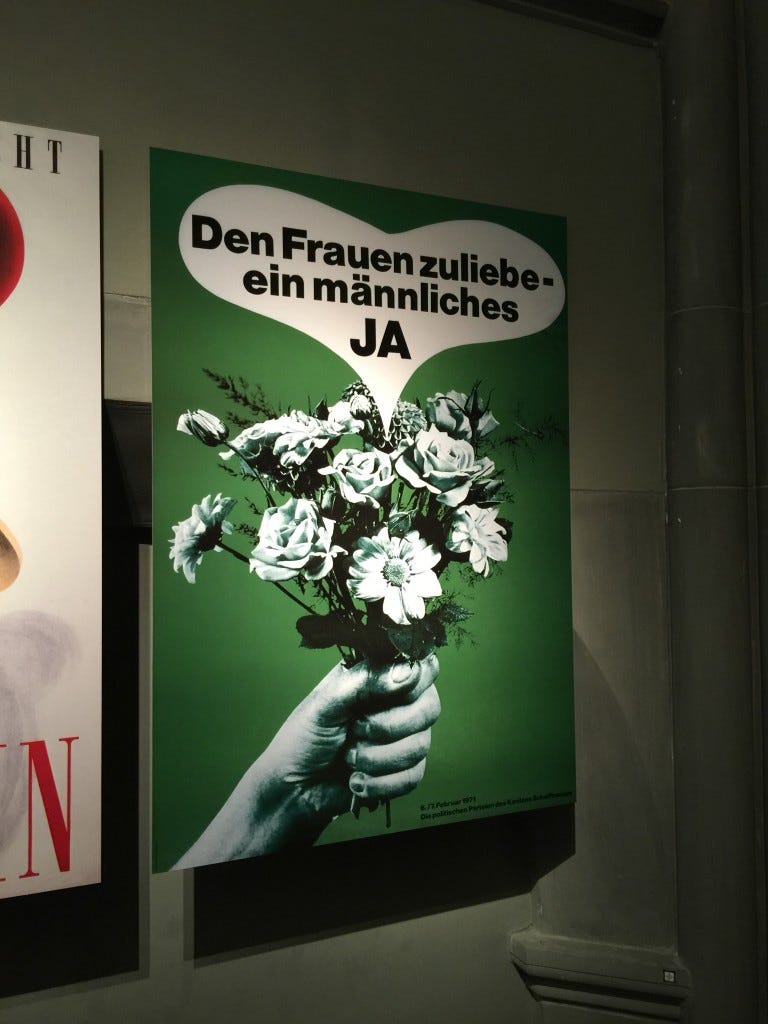Switzerland set to complete (just) 50 years of women's political participation, and other stories
(#WomenLead Issue 31): Your weekly round-up on women in politics
Hello, and welcome to the first edition of #WomenLead in the New Year!
Sending our warmest and best wishes to you - we hope 2021 is a year full of good health, meaningful work, and plenty of love and laughter.
The #WomenLead community has grown considerably over the holiday season (thanks to some generous souls who have been sharing our work with their friends and colleagues). A big welcome to all these new subscribers - we’re thrilled to have you on board, and we hope you’ll enjoy this ride.
At #WomenLead, we like to tell important global political stories from the vantage point of women in politics. And when we say women in politics, we mean diverse women from different regions at all levels of politics.
Every week, the newsletter brings you a mix of some quick updates, a deep dive (the “spotlight”), and some reading/listening/viewing recommendations. We also include a resource of the week (ROTW), with the hope that it helps add to your understanding of gender and politics. Once every now and then we also bring you #WomenLeadConversations - the next in the series will be out later in the week, so keep an eye out :)
Don’t miss: Twenty memorable moments from #WomenInPolitics in 2020
Quick updates
In our last edition of 2020, we visited Argentina, which was on the brink of a historical moment. The Lower House of Argentina’s Congress had passed a bill to legalize abortion. On December 30, the Senate voted in favour too. Argentine women can finally access legal and safe abortion upto the 14th week of pregnancy. An outcome of a tremendously determined grassroots movement, this finally allows women the right to choose for their own bodies. It is also a significant moment for the region, which has some of the most restrictive laws on abortion. #OhYes!
Local election results in some Indian states have given several reasons to cheer. At 21, Arya Rajendran has become the youngest mayor in the country. She will head the Thiruvananthapuram Corporation, the largest urban body in the state of Kerala. A. Anandavalli will head the rural block in Pathanapuram, also in Kerala - the same block where she has served in the cleaning staff for nearly a decade. Two transpersons, Devika and Sudha, have been elected to their village councils in Karnataka, and college students J. Sandhiya Rani and R. Subitha have made it to local bodies in Tamil Nadu. And these are just a few remarkable examples. India has a quota for women at the level of local government, and so the number of women getting elected is not new. But the presence of young and diverse women is always a moment to draw happiness from, isn’t it?
Also read: How women are revolutionizing politics in India's villages: A new book explores
German Chancellor Angela Merkel’s speech from March 2019, where she addressed the nation on Covid-19, was chosen as the “speech of the year” by a panel of the Tübingen University. The speech, where Merkel described the outbreak as “Germany's greatest challenge since the end of WWII”, was appreciated for “how reason, helped by rhetoric, can prompt action and how good rhetoric can foster community feeling and cohesion.”
On a related note, a soon-to-be-published study looked at political speeches made during the pandemic to examine whether the speaker’s gender had an impact. The analysis covered 122 speeches made by 10 male and 10 female leaders. Authors Sara Dada and others found stark differences based on gender. For instance, men tended to rely more on “fear-based tactics” by using “war rhetoric”, while women stressed on social unity through “personal examples and appeals for compassion”. More on their findings here.
Spotlight: SWITZERLAND
2021 is an important milestone year for Switzerland. It marks 50 years of women getting the right to vote and to contest elections. Or, as the Alliance F remarked, the year marks the completion of 50 years since men’s law was transformed into a real democracy.
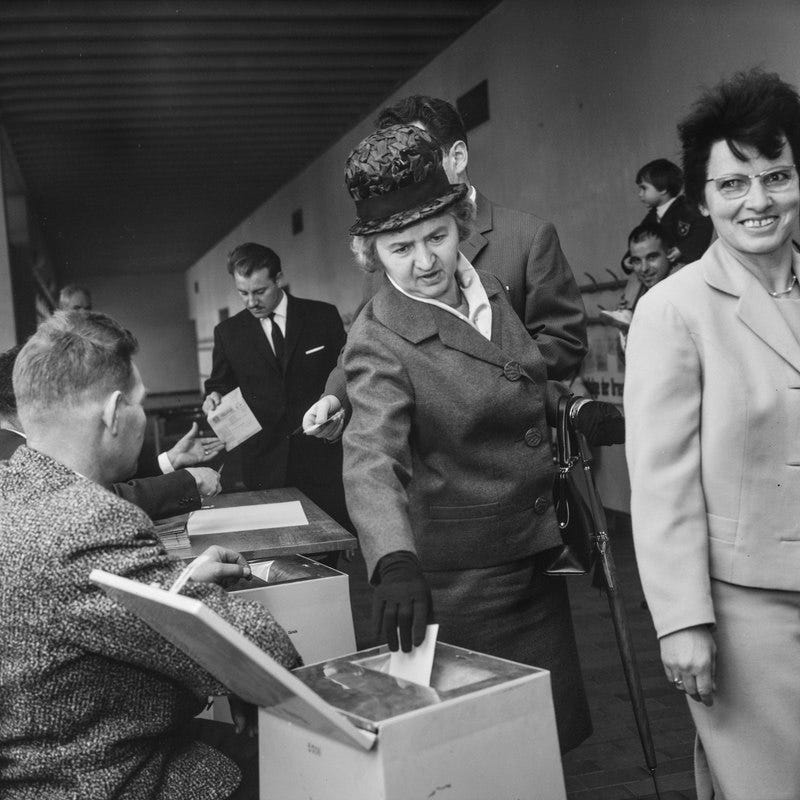
Yes, you read that right. Women in Switzerland have had the right to vote only for half a century. We don’t know about you, but it definitely took us a while to digest that. So, we went down a rabbit hole to satiate our curiosity (rather, disbelief).
Switzerland is a direct democracy, and hence any legal reform is arrived at not in a Parliament, but by all voters voting in a referendum. The country is considered one of the oldest democracies in the world, with men going to the ballot as early as 1291. The demand to allow women to vote started growing towards the end of the 19th century, and gained traction as other nations in the neighbourhood started making their elections gender inclusive. But in Switzerland, such a reform needed a referendum, i.e. a majority of the voters (i.e. just men at that time) would have to vote in favour of such a reform, and they didn’t seem convinced.
A referendum was finally held in 1959, but the men voted against allowing women to vote or contest elections. A look at some of the posters of the time gives us a sense of why men were opposed to this.
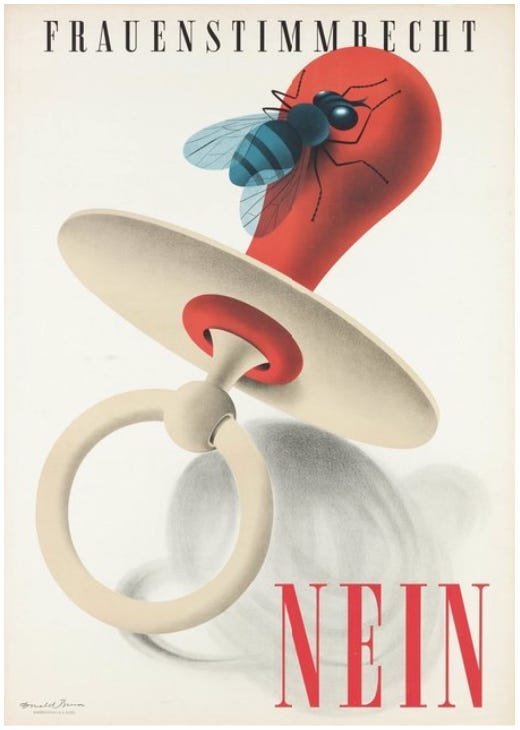
This poster by Donald Brun shows a neglected pacifier with a housefly sitting on it. The text reads: “Votes for women - No”. This theme - that women would neglect motherhood and care duties if they were allowed to vote - was common in other posters of the time. This one cautions that letting women vote would lead to political bickering at home:
Other posters argued that politics would divide women, and that women needed to be protected from parties and politics. And this one asks, why be more feminist than women? Vote against suffrage. #Bizzare
However, the demand persisted, and finally, in 1971 women got the right to vote. In a referendum held on February 7, 1971, 66 percent voted in favour of suffrage.
This one asks men to vote “Yes” for the sake of women. (Can’t help but notice the flowers and the heart imagery).
However, women were given the right to vote in 1971 only at the national level. At the local level, some cantons (local units) did not extend this right until 1990, when a court order made it mandatory. (1990!?!).
Read more: Swiss suffragettes were still fighting for the right to vote in 1971
And more: Non! Nein! No! A Country That Wouldn’t Let Women Vote Till 1971
Reflections & Reads
Meet the first Black woman to found a political party in Europe - Sophia Seawell profiles Sylvana Simons for Open Democracy
Women's political representation or real political power? Clare Nuttall analyzes the growing female political representation in Central and South East Europe in The Balkan Blog
That’s a wrap for this week. Liked reading this issue? Show some 💖 and hit the like button, or better still, share this with your friends/colleagues :) Got some feedback? Fill the feedback survey with ideas, comments and suggestions. We’ll see you next weekend with Issue 32.




